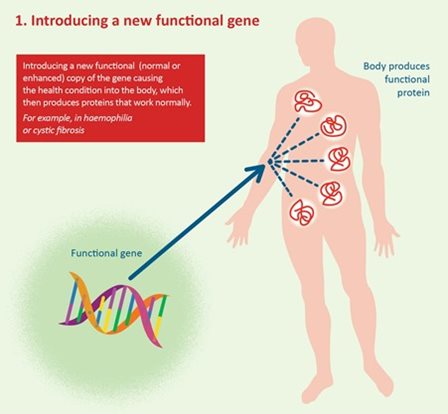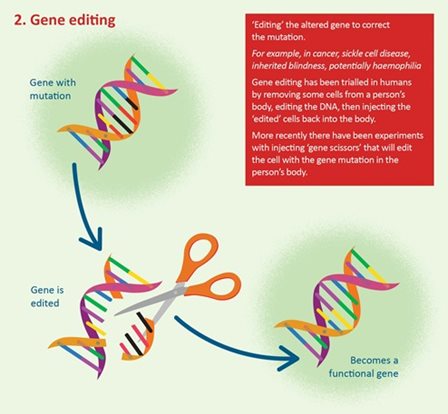What is gene therapy?
Gene therapy uses genetic material – a gene, which is a piece of DNA or RNA – to treat, cure or prevent health conditions.
Types of gene therapy
There are different types of gene therapy.
Some are aimed at health conditions caused by a mutation or alteration in a gene. This mutation affects specific proteins in the body, which then causes the health condition. All of these types of gene therapy target the gene with the mutation, but each type of therapy works differently.
There are currently gene therapy clinical trials to treat a variety of genetic health conditions, such as haemophilia, cystic fibrosis, Huntington’s disease, spinal muscular atrophy or types of cancer. The types of gene therapy used in these clinical trials include two types used in haemophilia:
- Introducing a new functional gene: where a new functional (normal or enhanced) copy of the gene causing the health condition is introduced into the body. The body then produces proteins that work normally. For example, in haemophilia or cystic fibrosis

- Gene editing: where the gene with the alteration that causes the health condition is 'edited' to correct the mutation. For example, in cancer, sickle cell disease, inherited blindness, potentially haemophilia.

How does gene editing work?
Gene editing has been trialled in humans by removing some cells from a person’s body, editing the DNA, then injecting the ‘edited’ cells back into the body.
More recently there have been experiments with injecting ‘gene scissors’ that will edit the cell with the gene mutation in the person’s body.
